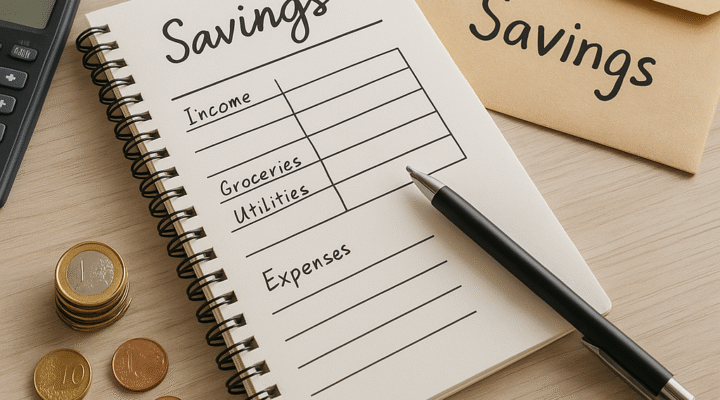
When people think about personal development, they often focus on productivity, mindset, or career goals. But one crucial area that often gets overlooked is financial organization. Your relationship with money directly affects your confidence, freedom, decision-making, and stress levels.
Organizing your finances isn’t just about spreadsheets and budgets—it’s about creating clarity, peace of mind, and the ability to live with purpose. Here’s how financial organization supports your personal growth and how to start building it.
1. Understand the Link Between Money and Personal Growth
Money affects nearly every part of your life.
- It influences your daily choices and long-term decisions
- It impacts your sense of safety and control
- Financial disorganization often leads to anxiety and avoidance
- Clarity with money supports confidence and personal freedom
When your finances are in order, you can focus your energy on bigger goals.
2. Track Your Income and Expenses
Clarity begins with awareness.
- Write down all sources of income
- Track every expense—no matter how small—for at least 30 days
- Use apps like Mobills, Organizze, or Excel to simplify the process
- Categorize spending (e.g., food, bills, leisure, transport)
Knowing where your money goes is the first step to making better choices.
3. Create a Realistic Budget
A budget isn’t a restriction—it’s a plan for your freedom.
- Set a monthly limit for each spending category
- Allocate money for savings and emergencies
- Leave room for leisure or spontaneous expenses
- Adjust your budget based on actual behavior—not wishful thinking
A good budget aligns with your values and current reality.
4. Build an Emergency Fund
Unexpected expenses will come—and they shouldn’t derail your life.
- Start with a small target: R$500, R$1.000, or one month of essential expenses
- Keep the money in a separate, easily accessible account
- Contribute a fixed amount monthly—even if it’s small
- This fund reduces stress and increases resilience
Financial security supports mental and emotional balance.
5. Set Personal Financial Goals
Your money should support your dreams—not just pay bills.
- Define short-term goals (e.g., travel, buy a new phone)
- Set medium and long-term goals (e.g., home ownership, investment, early retirement)
- Make your goals specific, measurable, and time-bound
- Review them monthly and celebrate progress
Clear goals give your financial habits meaning and direction.
6. Organize Your Bills and Payments
Late payments create unnecessary stress and fees.
- Use a calendar or reminders for due dates
- Automate fixed bills where possible
- Keep all invoices and receipts in one digital or physical folder
- Do a weekly “money check-in” to stay on top of everything
Organization gives you control instead of last-minute panic.
7. Simplify and Declutter Your Financial Life
Too many accounts, cards, or subscriptions cause confusion.
- Cancel unused services or subscriptions
- Consolidate debts or bank accounts if possible
- Use a single app to monitor all financial activity
- Clean your financial environment as you would your physical space
Simplicity supports consistency.
8. Educate Yourself About Money
Financial growth is personal development.
- Read books, watch videos, or listen to podcasts about financial literacy
- Learn the basics of saving, investing, and debt management
- Don’t fear terms like “CDB,” “Tesouro Direto,” or “rendimento”—learn them
- Information reduces fear and increases confidence
Knowledge is financial power.
9. Align Spending With Your Values
Spend with intention, not impulse.
- Ask before each purchase: “Does this align with my priorities?”
- Choose quality over quantity
- Track emotional spending patterns
- Mindful spending creates less clutter and more joy
Values-based financial decisions lead to a more fulfilling life.
10. Reflect on Progress Regularly
Financial organization is a process—not a one-time fix.
- Set aside time monthly to review your budget, expenses, and goals
- Celebrate wins like debt reduction, increased savings, or sticking to your budget
- Reflect on what’s working and what needs adjustment
- Let progress—not perfection—guide you
Financial Clarity Empowers Personal Growth
Your financial life is part of your personal development journey. When it’s disorganized, it creates anxiety and limitation. When it’s structured, it creates freedom and momentum.
Start small, stay consistent, and remember: organizing your finances is not about deprivation—it’s about creating the life you want with the resources you have.



Deixe um comentário